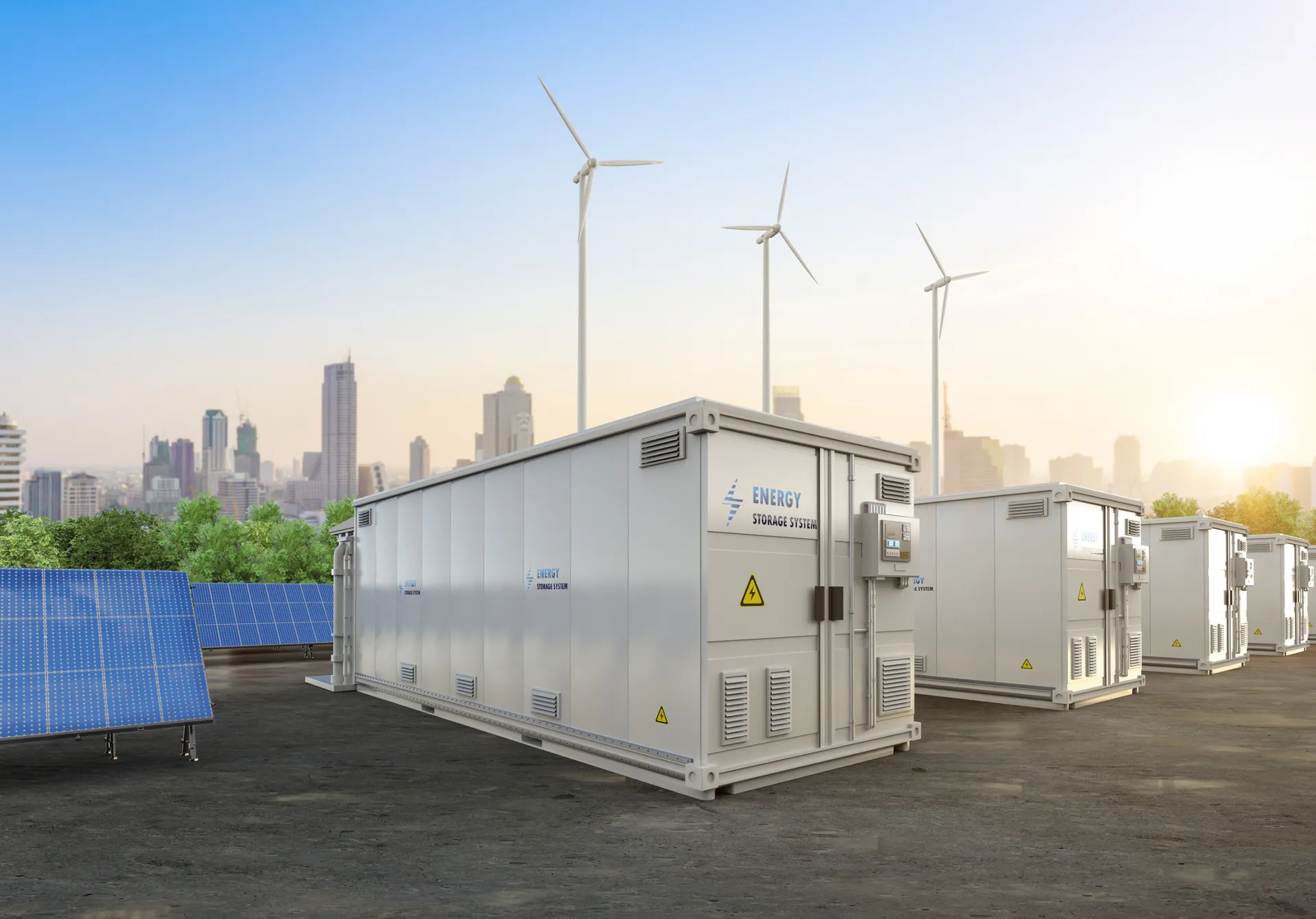For many companies, batteries are still associated with one function: backup power. But the role of Battery Energy Storage Systems (BESS) has transformed dramatically.
Driven by rising electricity costs, volatility in consumption, and the increasing need for flexibility, BESS has become a strategic business asset — one that improves operational efficiency and unlocks new revenue streams.
Large industrial consumers in Switzerland, in particular, are well positioned to benefit. With predictable load profiles, high energy costs during peak hours, and growing electrification (process heat, e-mobility, cooling), BESS provides both financial and operational advantages.
1. Peak Shaving: Reducing Grid Charges at the Critical Moment
For industrial companies, a significant portion of electricity costs is determined by peak demand, not total consumption. Even a short spike — when a machine starts, a compressor runs, or cooling demand rises quickly — can increase annual grid charges.
How BESS creates value:
- The battery discharges when the site’s load is about to exceed its contracted peak
- This reduces peak power (“Leistungsspitze”) and lowers grid tariffs for the entire year
- Savings can be substantial for sites with heavy machinery or variable production
Typical benefit:
10–30% reduction in annual grid-related costs.
Peak shaving is often the first and most tangible business case for a battery — and requires no changes to the production process.
2. Load Shifting: Optimising When Energy Is Consumed
Electricity prices fluctuate significantly throughout the day.
With dynamic tariffs and the increasing seasonal difference between midday solar peaks and evening demand, companies can optimise costs by shifting consumption to cheaper hours.
How BESS creates value:
- Charge during low-price periods (e.g. midday solar excess)
- Discharge during expensive hours (early morning, evening peak)
- Reduce exposure to price volatility and improve cost predictability
For sites with electric boilers, heat pumps, cooling systems or EV fleets, load shifting can integrate directly into operational planning without reducing production output.
3. Ancillary Services: Turning Flexibility Into Revenue (Especially aFRR)
Switzerland’s ancillary services market — especially automatic Frequency Restoration Reserve (aFRR) — rewards assets that can react quickly to stabilise the grid.
BESS is exceptionally well suited for this because it can respond within seconds.
aFRR potential for companies:
- BESS delivers upward or downward power when grid frequency deviates
- The system operator pays for both availability and activation
- Industrial companies earn revenue without interrupting production
- Batteries can switch between aFRR and internal use (e.g. peak shaving) based on profitability
In practice, combining internal optimisation with aFRR participation often results in the strongest economic case.
4. Backup Power: Still Important — But Only One of Many Functions
Even though the role of BESS has expanded, backup capabilities remain valuable for industries with:
- Critical processes
- Cooling chains
- Automation systems
- Safety-relevant equipment
Unlike diesel generators, BESS offers:
- Instantaneous switchover
- No pollutants or noise
- Lower maintenance
- Possibility to monetise unused capacity in the meantime
Backup becomes an integrated part of a revenue-generating asset, not the sole purpose.
5. A Strategic Asset for Industrial Flexibility
As Switzerland electrifies heating, processes and mobility, companies face:
- Higher grid fees
- Rising demand peaks
- More complex load patterns
- Greater dependency on reliable supply
BESS provides a flexible buffer between operations and the grid. Industrial sites gain:
- Predictable energy costs
- Higher resilience
- Optimised self-consumption from PV
- Flexibility for future technologies (e-mobility, heat pumps, sector coupling)
For many companies, batteries are no longer a “nice to have” — they are an economic efficiency tool.
Conclusion: From Cost Centre to Profit Driver
Battery Energy Storage Systems are becoming standard components of modern industrial energy systems.
They reduce costs, unlock new revenue, stabilise production and support Switzerland’s broader energy transition.
For companies exploring electrification, PV expansion, e-mobility or sector-coupling concepts, a BESS delivers the flexibility needed to manage complexity — and turn it into competitive advantage.



